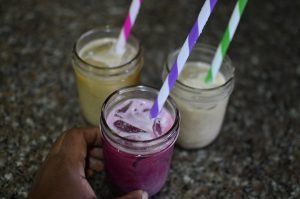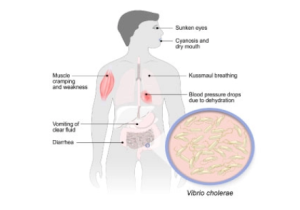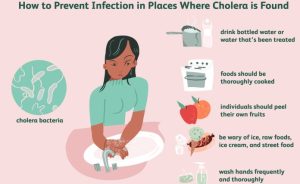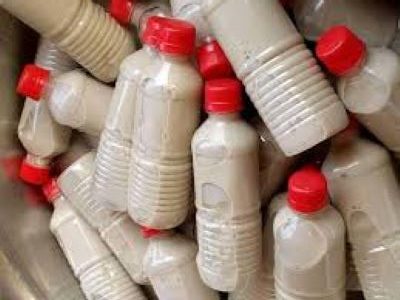The Nigeria Centre for Disease Control and Prevention has said that beverages, ice block, and drinks prepared with unclean or contaminated water can spread cholera.
Cholera is a food and water-borne disease caused by the ingestion of the bacteria— Vibrio cholerae— in contaminated water and food.
Symptoms of cholera include acute profuse, painless watery diarrhoea (rice water stools) of sudden onset, with or without vomiting. It may be associated with nausea, profuse vomiting, and fever.

Severe cases of cholera can lead to death within hours due to dehydration. However, about 80 per cent of infected people may only show mild symptoms or have no symptoms at all.
In Nigeria, cholera is an endemic and seasonal disease, occurring annually mostly during the rainy season and more frequently in areas with poor sanitation.
The 10 states contributing 90 per cent to the current cholera outbreak burden include Bayelsa, Zamfara, Abia, Cross River, Bauchi, Delta, Katsina, Imo, Nasarawa, and Lagos states.

So far, from January 1 to June 11, 2024, cholera cases have been reported from 96 LGAs in 30 states, according to the Nigeria Centre for Disease Control and Prevention.
The NCDC on its X handle, NCDCgov, on Tuesday, warned, “Beverages, ice and drinks prepared with unclean or contaminated water can spread #cholera.
“Protect yourself and your loved ones; do not buy or consume foods or drinks prepared with water from unreliable sources.”
The agency advised Nigerians to make water safe and use water from reliable sources.
It said, “Use water from reliable sources, boil water before drinking, store water in properly covered containers, ensure bottled water and pure water sachet is properly sealed before you drink it.”
It noted that the disease is easily treatable if detected early.
 “Most infected people can be treated successfully through prompt administration of Oral Rehydration Solution, to replace lost fluids and electrolytes, and appropriate antibiotics.
“Most infected people can be treated successfully through prompt administration of Oral Rehydration Solution, to replace lost fluids and electrolytes, and appropriate antibiotics.
“The ORS solution is a powder that can be reconstituted in boiled or bottled water. Cholera can be deadly when infected people do not access care immediately.
“Cholera can be prevented through ensuring access to safe, potable drinking water; proper sanitation and waste disposal; and appropriate hygiene including handwashing. Raw fruits and vegetables, food from street vendors, and raw or undercooked seafood should be avoided,” it added.


